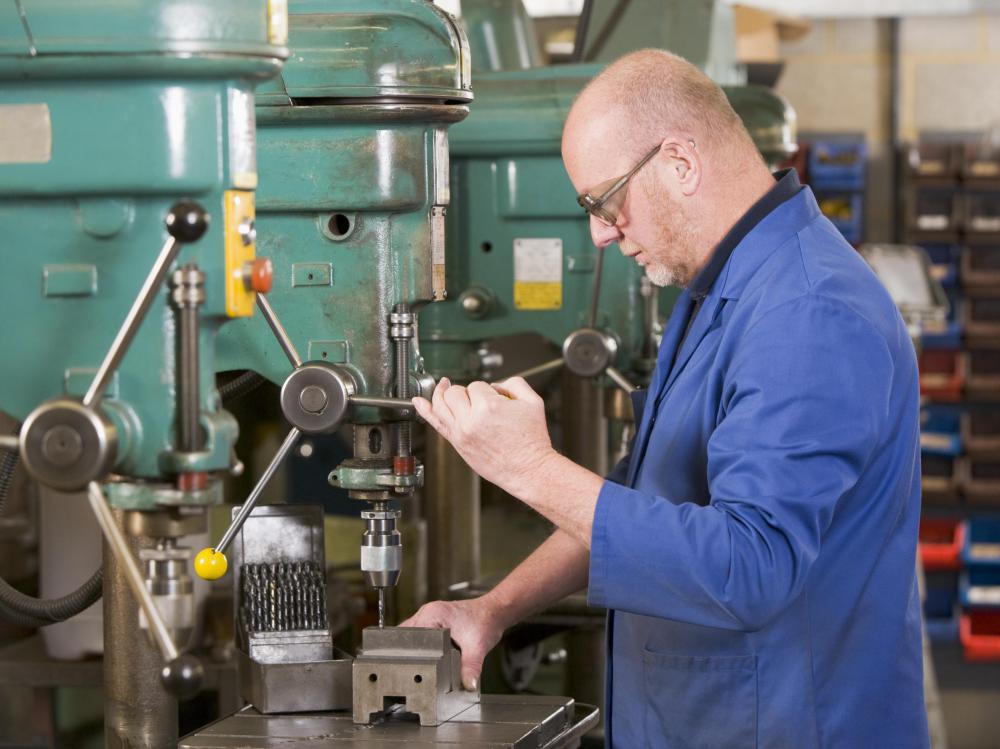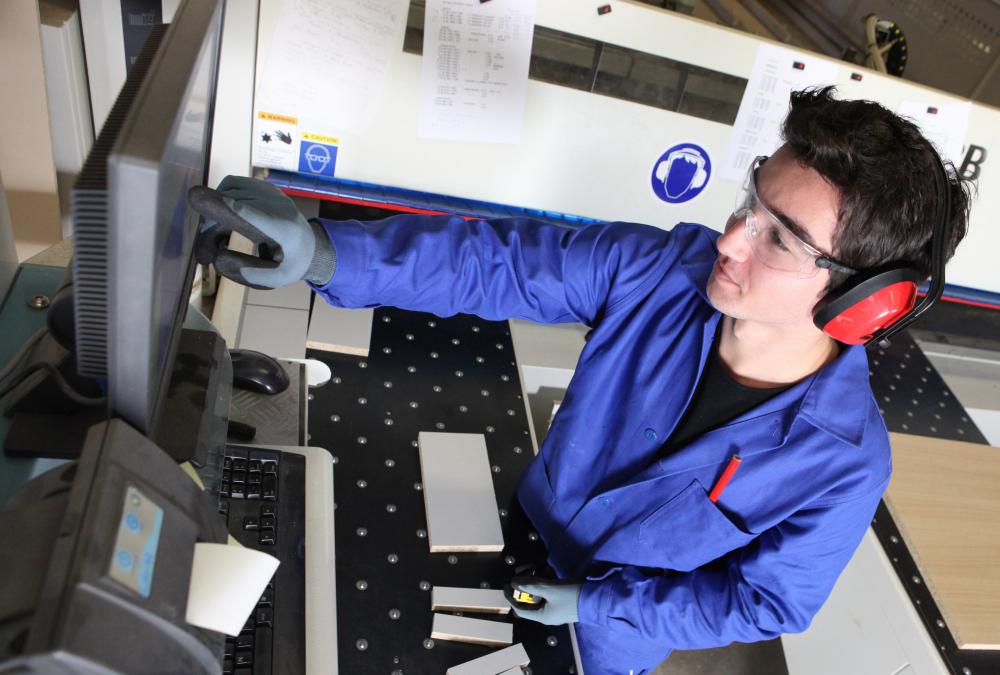At WiseGEEK, we're committed to delivering accurate, trustworthy information. Our expert-authored content is rigorously fact-checked and sourced from credible authorities. Discover how we uphold the highest standards in providing you with reliable knowledge.
What is a Blue Collar Job?
The term blue collar job typically refers to a job that involves manual labor and receives an hourly rate of pay rather than an annual salary. The term blue collar stems from the uniforms worn by many industrial workers that were typically made of heavy duty, blue fabric and consisted of blue shirts and pants or blue coveralls. The automotive manufacturing and repair industries, as well as the construction industry, have been referred to as blue collar for decades.
Though this type of job was once thought to be reserved for people with no education or skills who were seemingly only qualified to perform manual labor, the defining qualities of a blue collar job no longer fit in some industries. For example, many computer and high tech jobs pay by the hour, and some construction industry positions pay an annual salary. In modern times, a higher education may also be required for a number of positions, which are categorized as “skilled trades.”

People who have traditionally held a blue collar job are referred to as blue collar workers. The stereotype and social class of the blue collar worker has changed over the years. This is due in part to the increase in technology, which requires training, and the increase in pay among some industries.
A blue collar job is often within an industry governed by a labor union. Automotive, construction, electrical, and food industries all have labor unions that bargain for worker’s collective rights. In contrast to white collar jobs, or those involving no manual labor and with no supporting labor union, these jobs remain predominantly hourly positions. In terms of pay, such a job may be equal to an office or sales job, but benefits such as health care, vacation, and bonuses are often lacking.

Blue collar jobs within some industries have seen a decline, especially in the manufacturing industries, as manual labor has become outsourced at an increasing rate. Construction, HVAC, and automotive repair remain leading industries offering blue collar jobs in the US.
AS FEATURED ON:
AS FEATURED ON:















Discussion Comments
I think that construction is one industry that will never see a decline. Sure, factories can replace workers with robots, and newspaper companies can switch to online versions and eliminate jobs in the press room, but houses and other structures will always need to be built with human hands and expertise.
My dad has been working in construction all his life, and the only time he ever went without work was during extended rainy seasons. That is the downside of some blue collar jobs. The security of your paycheck depends on the weather.
Often, you can make enough money during dry periods to compensate for the days you can't do anything. Talented construction workers with experience are usually paid well for their manual labor.
@StarJo – The positive side of holding a blue collar job at a furniture factory is that you get to make good money. Several people in my family work for factories, and they are paid more than I make at my white collar job.
True, the employers often don't place as much value on their workers as they should, and you are more likely to get fired for violating the rules, even if circumstances were unavoidable. My husband works for a warehouse distribution company, and though he makes more than I have ever made in my life, the company has a policy that affords no exceptions.
Last year, he had to miss several days when his mom got sick. Because of the way the system was set up, when he returned to work, he could not miss another day for six months or his employment would be terminated immediately.
I held a desk job for a long time, and though I wasn't considered one, I often felt like a blue collar worker. I got an hourly wage, and the boss overworked me to the point I felt as though I were doing manual labor.
Since I did sit in an air-conditioned office doing computer work all day, I know that I couldn't fit the description. Still, I often thought that doing something physical all day would be more fun and keep me in better health than sitting and typing for eight hours.
I finally made the decision to get a real blue collar job. I had always loved working with plants, and a local landscaping company needed people to plant and maintain flower beds at various businesses in town. I got the job, and I have been so much happier ever since.
The majority of the people in my community are blue collar workers. I live in the South, and we have so many furniture factories down here. I would say that probably seven out of every ten people I meet are employed by these factories.
They are paid by the hour, and many of them have to follow strict sets of rules. I know of one lady whose boss fired her because she had to miss a week of work when her daughter was in the hospital.
This is the unfortunate thing about many blue collar jobs. The companies often view the workers as machines, and if something goes wrong with them, they simply discard them and get new ones.
Teachers are blue collar workers until that teacher makes a scientific or technological invention then owns a patent for it. Teaching is a secondary skill. Did the teacher write the book? Secondary.
Subway11-According to the writer’s definition, they should be. Many teachers are part of a union and jobs associated with unions are generally deemed blue collar.
These unions negotiate contracts for the teachers much like the auto workers union does for its auto workers.
Excellent article- I just had a question. Are teachers considered blue collar workers?
Post your comments